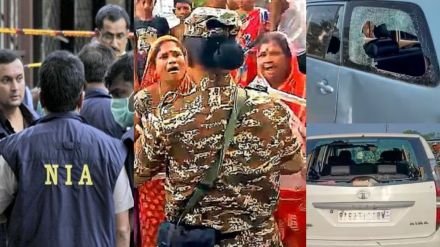Kolkata has emerged as a critical epicentre in India’s national security network, as the National Investigating Agency (NIA) ramps up surveillance and operations focused on combating cross-border espionage, illicit funding, and digital financial crimes tied to foreign intelligence operations, including Pakistan’s ISI.
Kolkata: India’s Intelligence Nerve Centre for the East
Strategically positioned near Bangladesh and the northeastern “seven sister” states, Kolkata serves as a command center for the NIA’s intelligence-gathering and counterterrorism efforts. According to recent investigations, the city has become a focal point for tracking suspicious digital transactions, fake documentation, and movements of individuals suspected of aiding foreign intelligence networks.
Sources within central agencies indicate that Kolkata’s financial hubs, educational institutions, and passport issuance centers are under the scanner for their potential misuse by extremist groups and cross-border operatives.
Digital Trails: UPI Transactions and Passport Misuse
In a modern twist to traditional espionage, financial forensics teams within the NIA have traced suspicious activity through Unified Payments Interface (UPI) platforms. These accounts are reportedly being used to transfer illicit funds to sleeper cells and facilitators, bypassing conventional banking scrutiny.
- Illegal passport issuance is another red flag—false documentation used to infiltrate sleeper cells or facilitate unlawful immigration and radical network expansion.
- Forged Aadhaar and PAN cards, often linked to digitally active UPI wallets, are key leads in ongoing probes.
ISI’s Expanding Footprint: Targeting Eastern India
Security sources suggest that Pakistan’s Inter-Services Intelligence (ISI) has been channeling funds and coordinating efforts to destabilize India’s eastern states, exploiting porous borders and socio-political fault lines.
- Intelligence has linked these funds to activities including radicalization campaigns, fake recruitment networks, and propaganda operations aimed at undermining Indian unity.
- The northeast region—especially Assam, Tripura, and Manipur—has shown heightened vulnerability, prompting tighter surveillance and intelligence-led policing.
Border Security Force & Central Coordination: The Frontline Response
The Border Security Force (BSF), in collaboration with NIA and central agencies, is enhancing border patrols, electronic monitoring, and community intelligence systems to seal infiltration routes and monitor suspect activities.
Joint operations include:
- Drone surveillance and satellite mapping of key infiltration zones.
- Seizure of forged currency, passports, and mobile SIM cards used in espionage.
- Community awareness programs to educate border villagers about radicalization indicators.
Rising Concerns over Islamist Radical Networks
Recent intelligence inputs confirm the growing threat of Islamist group expansion across Bangladesh and bordering Indian states, raising alarms about transnational recruitment, ideological indoctrination, and funding pipelines connected to global jihadist agendas.
Analysts point out that extremist ideologies are being tailored to target vulnerable youth, especially in border-adjacent districts of Bengal and northeast India. The presence of encrypted communication channels, online hate speech, and foreign propaganda are all being monitored actively.
Economic Crimes as National Security Threats
The NIA underscores that financial forgery, money laundering, and illicit digital transfers are not just economic crimes—but critical threats to national sovereignty. These crimes:
- Fund terrorist logistics and training camps.
- Support covert operations aimed at intelligence gathering.
- Weaken institutional credibility and border governance.
Thus, financial integrity is directly tied to national defense, and Kolkata is leading India’s efforts to enforce it.
Regional Dynamics: The “Seven Sisters”, Pakistan & Bangladesh
India’s eastern theatre is characterized by complex geopolitical challenges, with the “seven sisters” states, Bangladesh, and Pakistan forming a volatile matrix of ethnic sensitivities, religious fault lines, and strategic rivalries.
The NIA’s work in Kolkata reflects a multi-layered security response—combining financial audits, cyber-forensics, and inter-agency coordination to protect India’s eastern flank from becoming a hotbed of foreign-funded disruption.
#niaindia, #kolkatasecurity, #isiinindia, #digitalforensics, #upiinvestigation, #bordersecurity, #financialforgery, #crossborderterror, #nationalinvestigatingagency

